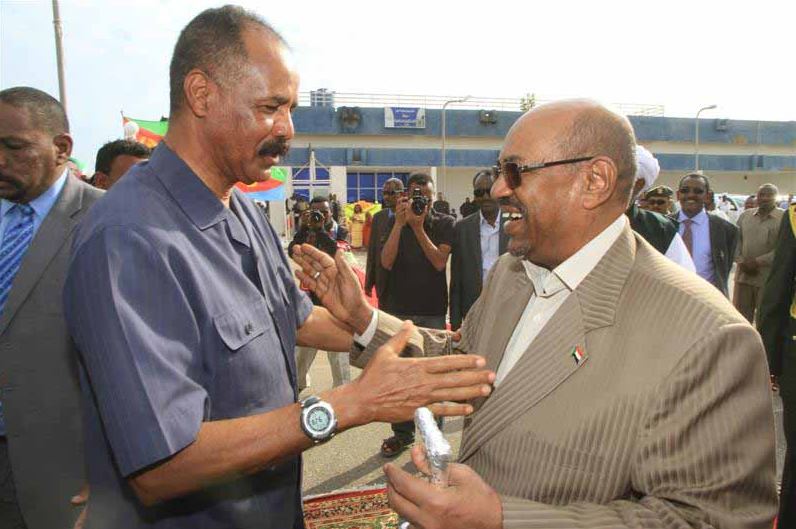Sudan’s al-Bashir reopens border with Eritrea

January 31, 2019 (KHARTOUM) – President Omer al-Bashir announced on Thursday the opening of the border with Eritrea, a year after its closure and accusations that Asmara supported rebel attacks against his regime.
“Politics may divide us, but what brings us together is bigger than what it divides us. There are bonds of blood and geography,” said al-Bashir from the border town of Kassala.
He further said the opening of the border with neighbouring countries aimed to exchange benefits and freedom of movement between the border components and to d promote peaceful coexistence between neighbouring countries
On 6 January 2018, Sudan decided the closure of the eastern border with Eritrea, citing hostile military activities on the other side of the brooder by rebel groups backed by Asmara.
The Sudanese government also deployed some 50,000 militiamen of the Rapid Support Forces and declared the state of emergency in Kassala.
In Asmara, there is was no official reaction to the decision as the official media remained silent.
It was reported that President Isaias Afewerki declined Ethiopian efforts to improve relations between Asmara and Khartoum.
It was reported that he asked to know why Khartoum decided to close the border and deploy troops.
The opening of the border is expected to contribute to the improvement of the relationship between the two capitals.
The Sudanese president is touring the different regions and some neighbouring countries, as he is facing the largest protests in his 30-year rule.
Speaking about the ongoing protests against his government, he said the transfer of power can only be through elections.
The change of government is not through WhatsApp and Facebook, but through the ballot box, said al Bashir indicating that the decision is in the hands of the Sudanese people in the elections of 2020.
He also stressed the government’s commitment to addressing all issues of youth adding they the asset and the future of Sudan.
During his visit to Kassala, he witnessed a ceremony of a collective wedding for 250 soldiers. Also, he distributed 900 goats to 300 poor households, every family received three goats to increase their income.
(ST)
